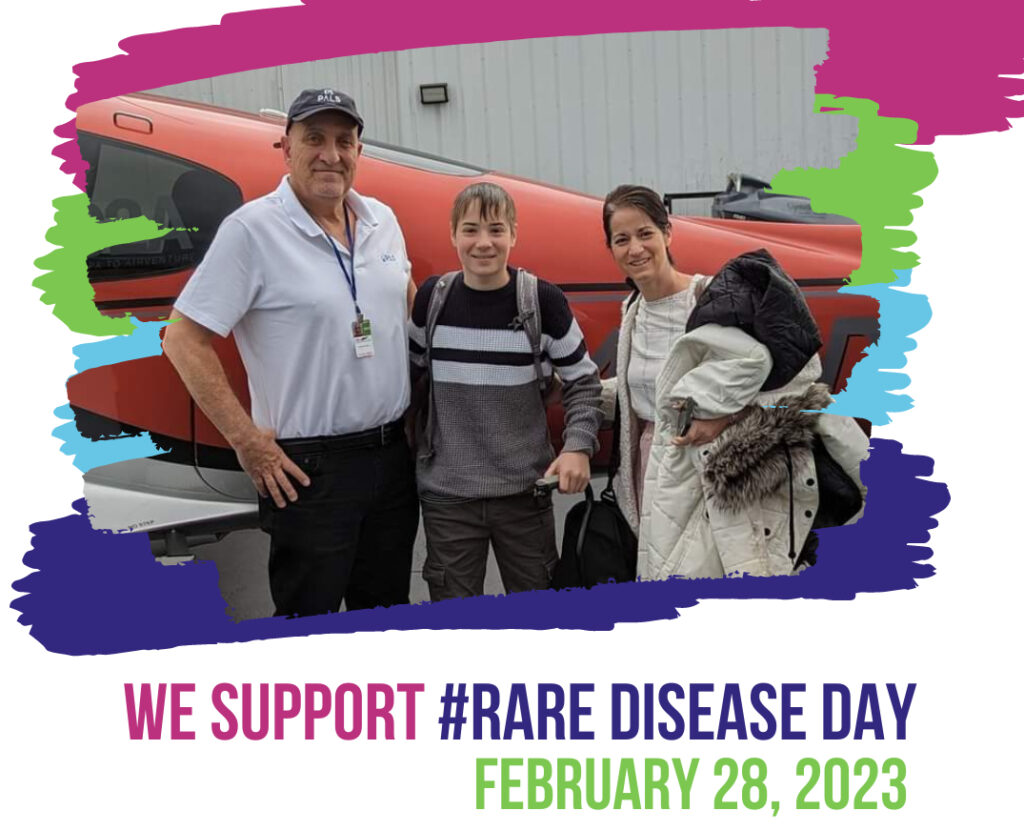It’s a day to raise awareness of the over 7,000 rare diseases that impact over 300 million people globally!
PALS SkyHope in partnership with NORD for Rare Disease Day is asking for donations to help people living with rare diseases get to the critical care they need. Those individuals often need to travel to care that is too far from home to drive and/or they can’t fly in commercial aircraft.
PALS SkyHope is committed to serving those with Rare Diseases and to utilize giving days such as this to spread awareness of not only the PALS missions, but to support those with Rare Disease. With projects such as PALS SkyHope Medical Flights, we hope to better understand and effectively serve those with Rare Diseases.

Follow the hashtags and share your Rare Disease story at #ShowYourStripes and #ShareYourColours, and join the community as a visible way to come together on February 28, 2023.
The most impactful way to participate is by sharing your personal story, whether it’s yourself that’s dealing with a Rare Disease or someone that you know. One may not think it, but patient’s stories change lives. During the NORD webinar, Dr. Sheldon Garrison said that it was a patient story that influenced his career and since then has devoted his life to the study of Rare Diseases.
PALS SkyHope Rare Disease Story
The Reznick family’s life was forever changed when their baby Tommy was diagnosed with Krabbe disease, a rare genetic disorder, which is usually fatal by age 2. The leading doctor in research and care for children with Krabbe is located at the Children’s Hospital of Pittsburgh, a 7-hour drive from the Reznicks’ home in West Islip, New York. Traveling out of state with a baby for care caused an immense amount of stress. That’s where PALS came in. With two other children at home, PALS minimizes time away from home, cost and stress. Tommy is now 3 years old.
The team at PALS SkyHope recognizes the over 300 million people worldwide living with a Rare Disease. Together across borders, and across the 6000+ rare diseases we work towards more equitable access to diagnosis, treatment, and care.

